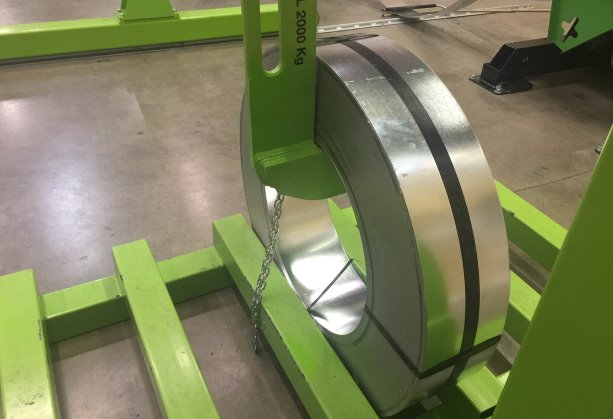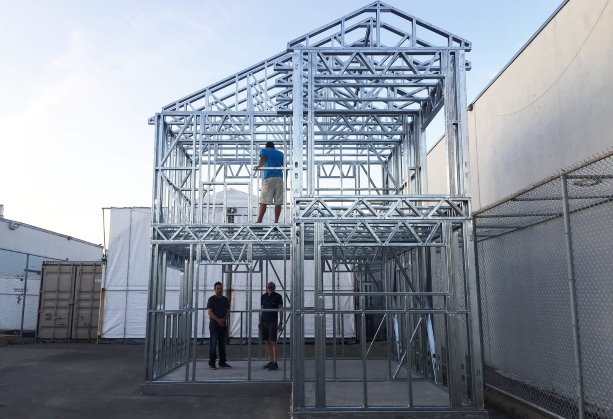A new company is looking to shake up the traditional wood-frame industry in the Lower Mainland with steel technology and methods from New Zealand.
LifeTec uses FRAMECAD, a light-gauge steel framing system that allows the studs to be completely designed digitally and then formed by a specialized machine.
"We essentially build the whole house stud by stud in a virtual space," said Krishna Jolliffe, LifeTec president.
The data is then entered into a machine that converts steel into wall panel, floor joist and roof truss parts by shearing, punching and roll forming. Assembly teams then screw parts together.
The team can produce about 1,500 to 2,000 square feet of wall panels a day for the average home project. The parts are packed onto pallets, delivered and then assembled onsite, which for the average home takes roughly a week.
"As far as the construction industry is concerned, it’s creating a lot of time efficiencies, removing a lot of human error and inconsistences associated with traditional construction," said Jolliffe. "By the time it leaves for the job site it is 90 per cent done."
LifeTec’s frame structures have just half a millimetre of variance, unlike traditional wood frame, which moves and swells, he stated. This means with steel, workers don’t have to wait to install windows or other items.
LifeTec has been in Vancouver only a year and only in their facility for three months. The technology has been available in New Zealand and Australia far longer as wood can be very expensive in those countries. But in B.C., which is rich with wood supply, light gauge steel or cold form steel structures are not common, Jolliffe added.
After seeing the method in the U.S. and determining that their prices could be competitive, Jolliffe and his partner decided to bring it to Western Canada.
"Our first big challenge was finding an engineer that was comfortable working with us and stamping our designs," said Jolliffe.
The team also expected a lot more pushback from the local industry which is more used to traditional wood frame construction.
"I was expecting a lot of resistance to be honest but we haven’t really seen much," said Jolliffe. "The reaction has blown us away. When builders see it and the machine and the product, they just get it right away."
Jolliffe also said many were initially concerned about cost.
"The problem with this market is that it scared people because the lumber industry is so strong here and is so affordable," he said. "But right now, we will do that same job, we will do it in steel and for the same price."
The team planned on first doing a few test projects with friends, getting the business set up and then soliciting projects next year. But once word got out the business has been going full steam.
Jolliffe said he has five contracts signed, including building a home with contractor Kenny Gemmill who many know from TV’s "Love it or List It."
Jolliffe said he has also been working on projects for Vancouver’s film industry, which requires rapid construction to meet tight production schedules.
"They sent us a sketch of it and we were able to have it drafted, go through engineering and delivered in three businesses days," he said, adding he couldn’t say more due to a non-disclosure agreement with the network.
He said the company plans to have a major presence at next year’s BUILDEX as well as the Home and Garden Show.
"That’s when everyone will really get to see what we do and who we are," he said.




Recent Comments
comments for this post are closed